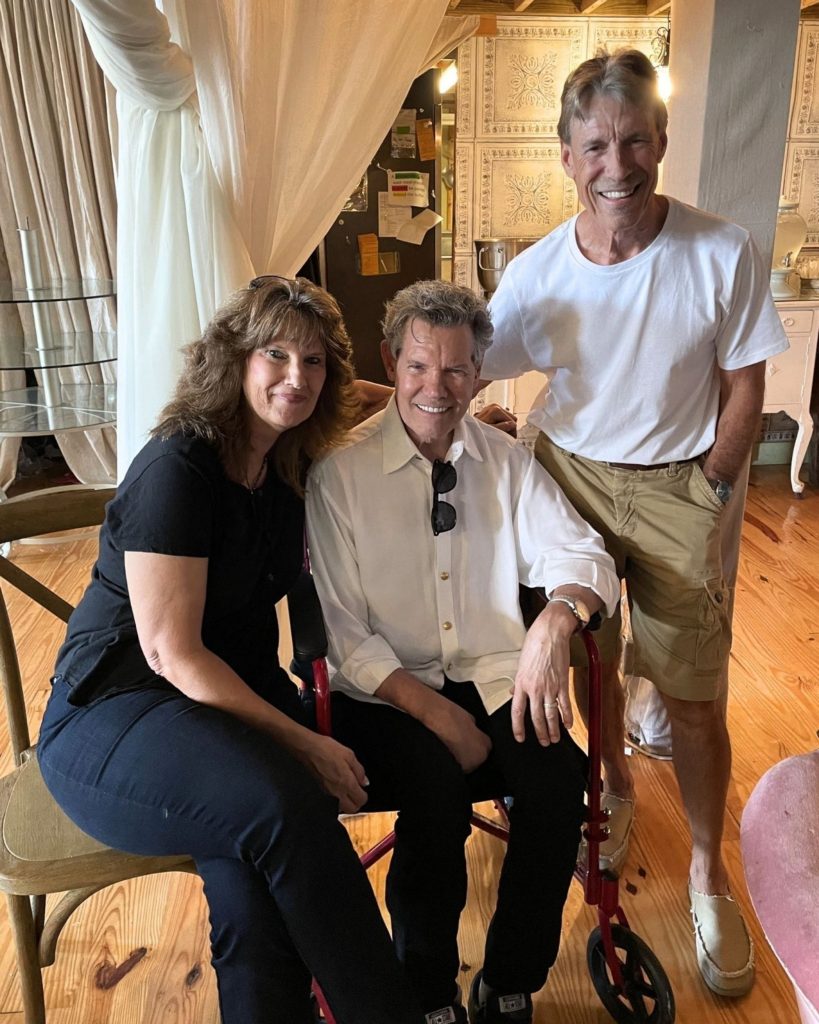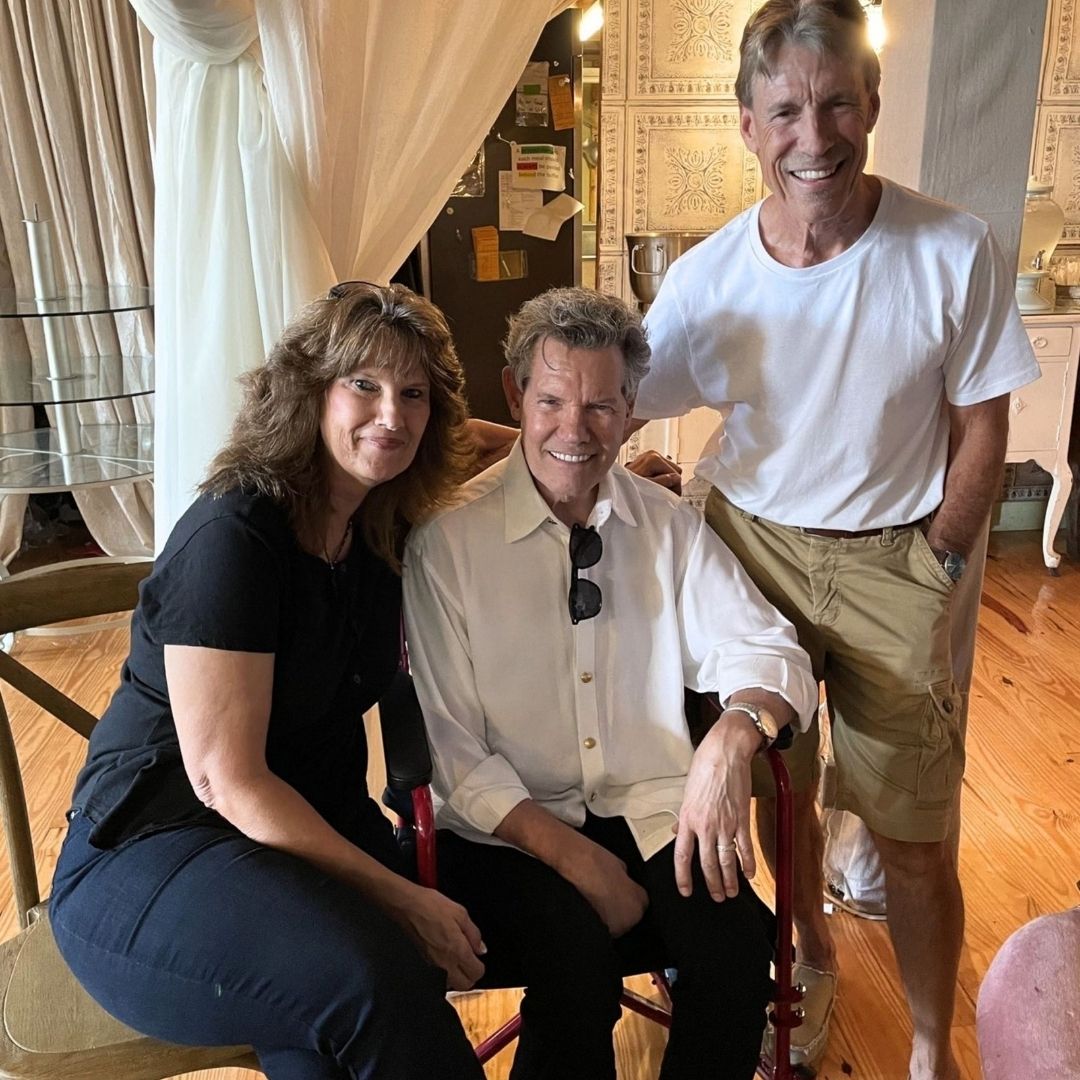
Introduction
In the late 1980s, as country music was riding a wave of newfound mainstream popularity, I remember flipping through radio stations on a long drive through the Midwest, landing on a voice so earnest it stopped me in my tracks. It was Randy Travis, singing “Promises.” The simplicity of the song, paired with its raw emotion, felt like a conversation with an old friend. That moment stuck with me, a testament to how a song can capture something timeless. “Promises” isn’t just a track from Travis’s catalog—it’s a window into a pivotal era of country music and the heart of a man who helped define it.
About The Composition
- Title: Promises
- Composer: Randy Travis and John Lindley
- Premiere Date: Released as a single in May 1989 (originally a B-side in March 1987)
- Album/Opus/Collection: Old 8×10
- Genre: Country (Traditional/Neotraditional)
Background
“Promises” was co-written by Randy Travis and John Lindley during a prolific period in Travis’s career, when he was reshaping country music with his neotraditional sound. Initially released in 1987 as the B-side to the chart-topping “Forever and Ever, Amen,” it wasn’t until 1989 that “Promises” got its moment as the A-side, the fourth and final single from Travis’s album Old 8×10. The song peaked at number 17 on the U.S. Billboard Hot Country Songs chart and number 12 in Canada, a modest showing compared to Travis’s string of number-one hits like “Honky Tonk Moon” or “Deeper Than the Holler.” Music journalists, such as Tom Roland and Colin Larkin, noted its relative underperformance, attributing it to the song’s stark arrangement—just vocals and acoustic guitar—which stood in contrast to the more polished productions of the time.
The song’s inception reflects Travis’s commitment to authenticity. At a time when country music was flirting with pop crossover, Travis leaned into a minimalist approach, drawing inspiration from the genre’s roots. Old 8×10, released in 1988, was a deliberate return to traditional sounds, and “Promises” embodied that ethos. Its significance lies in its vulnerability—a departure from the upbeat anthems that dominated Travis’s early career. While it didn’t soar commercially, it carved a niche in his repertoire as a deeply personal piece, showcasing his ability to convey profound emotion with minimal embellishment.
Musical Style
“Promises” is defined by its barebones structure, a bold choice in an era of lush country productions. The instrumentation is sparse: a single acoustic guitar, picked rather than strummed, sets a somber, reflective tone. There are no drums, fiddles, or steel guitars—just Travis’s rich baritone and subtle background harmonies that emerge in the chorus. The tempo is deliberately slow, almost meditative, allowing each lyric to linger. This simplicity amplifies the song’s emotional weight, creating an intimate, confessional atmosphere.
The song follows a straightforward verse-chorus form, with the guitar tracing open chords that shift subtly to underscore the narrative. Travis’s vocal delivery is restrained yet powerful, channeling the influence of legends like George Jones. The lack of ornamentation makes every nuance in his voice—every catch, every pause—feel like a revelation. As one reviewer noted, the song’s “degree of difficulty” lies in its reliance on vocal execution alone, and Travis nails it, holding listeners captive with raw sincerity. This stripped-down style makes “Promises” a standout, even among Travis’s more commercially successful hits.
Lyrics/Libretto
The lyrics of “Promises” tell a story of flawed devotion, a man acknowledging his shortcomings while vowing unwavering love. Lines like “My heart sometimes breaks the rules / But I’ll keep my promises to you” capture a universal tension: the struggle to live up to one’s ideals in the face of human imperfection. The theme is relatable yet specific, grounded in the narrator’s quiet resolve. Unlike many country songs of the era that leaned on grand gestures, “Promises” finds power in its humility.
The lyrics marry seamlessly with the music’s austerity. The slow tempo mirrors the weight of the narrator’s introspection, while the sparse guitar leaves room for the words to breathe. The chorus, with its faint “oohs” in the background, feels like a whispered reassurance, reinforcing the song’s emotional core. It’s a love song, yes, but one that embraces vulnerability over bravado, making it resonate deeply with listeners who’ve grappled with their own promises.
Performance History
While “Promises” didn’t dominate the charts, it found a home in Travis’s live performances, where its intimacy shone. Fans at his late-’80s concerts, including stops on the Marlboro Country Music Tour alongside Alabama and George Strait, often cited it as a highlight for its raw delivery. The song’s understated nature made it a bold choice amid the era’s flashier hits, but it connected with audiences who valued Travis’s authenticity. Over time, it became a cult favorite among fans, appreciated for its honesty rather than its commercial clout.
Notably, Daryle Singletary covered “Promises” on his 2007 album Straight from the Heart, introducing it to a new generation. Singletary’s version paid homage to Travis’s original while adding a slightly fuller arrangement, yet it retained the song’s emotional core. Though not a staple in classical music, “Promises” has been performed at country music tributes and retrospectives, cementing its place in the genre’s canon.
Cultural Impact
“Promises” arrived at a crossroads for country music, when artists like Travis were pulling the genre back to its roots while others pushed toward pop. Its minimalist approach influenced later neotraditionalists, who saw value in letting a story speak for itself. Beyond music, the song’s themes of loyalty and imperfection have made it a quiet anthem for personal reflection, referenced in blogs and fan discussions about love and commitment. Its use in media has been limited, but its emotional clarity makes it a natural fit for introspective scenes—think a film moment where a character reckons with their choices.
The song’s broader significance lies in its defiance of trends. By prioritizing substance over flash, Travis set a precedent for authenticity that resonates with artists today, from Chris Stapleton to Kacey Musgraves. It’s a reminder that impact isn’t always measured in chart positions but in the hearts it touches.
Legacy
“Promises” endures because it’s honest. In a world that often demands perfection, the song’s admission of flaws feels radical. It remains a touchstone for fans who see Travis not just as a star but as a storyteller who mirrors their own struggles. Its relevance today lies in its universality—promises, broken or kept, are part of the human experience. For performers, it’s a masterclass in vulnerability, a challenge to convey depth with minimal tools.
The song also holds a special place in Travis’s legacy, especially given his later health challenges. After a 2013 stroke left him unable to sing, the purity of songs like “Promises” became a poignant reminder of his artistry. Recent AI-assisted releases, like 2024’s “Where That Came From,” show his voice still resonates, but “Promises” captures him at his peak—unadorned and unforgettable.
Conclusion
“Promises” is more than a song; it’s a quiet rebellion against excess, a love letter to imperfection. For me, it evokes late-night drives and moments of self-reflection, a reminder that the simplest truths hit hardest. I encourage you to listen to the original 1989 single, ideally Travis’s cut from Old 8×10—let the guitar and his voice sink in. For a live feel, seek out fan-uploaded concert clips from the ’80s, where his sincerity shines. Dive into this song, and you’ll find a promise worth keeping.
Video
Lyrics
Cheap perfume and painted faces
Fallen angels fill the places
Where I go when my troubles pull me down
And all the lies, I know they’ll tell me
And the time that they will sell me
For a while, I’ll be the biggest man in town
Back at home
In bed she’s crying
For her love for me is dying
But she’ll pray I make it safely through the night
When the morning sun starts showing
To her bedside I’ll be going
And she’ll hold me
While I face the morning light
And I’ll make promises
Promises to change
I’ll make her promises
Swear I’ll rearrange
And I’ll start giving all the love she needs
If only she will stay
Once again, she’ll reassure me
And I believe her love will cure me
And I’ll fall asleep with tears on my face
And I know she’s just a woman
And her love can’t last forever
And someday soon
I know she’ll leave without a trace
For broken promises will tear her dreams apart
Just token promises will someday break her heart
And for the last time
She’ll hold me when I cry and while I’m sleeping
She’ll quietly say goodbye
